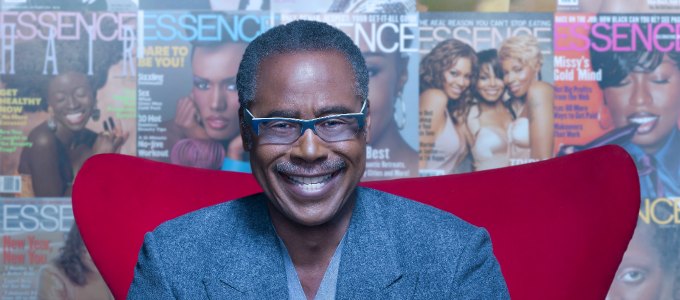
In 1969, a difficult period of growing acceptance riding the wave of the civil rights movement, Edward Lewis founded Essence, a magazine about black women that continues to work against stereotypes.
by Luke Siuty
July 21, 2014
A magazine like Essence, which targets black women as its audience, may seem like an unlikely candidate for a widespread audience. However, the publication celebrates the 45th running year, starting from a 50,000 initial print run. Today, it reaches 8 million readers around the world, and yet it accomplished something more. It served to break certain stereotypes and include women of color in conversations happening around them, indicating that they too can have advertisements targeted at them, and that corporations shouldn’t take the demographic lightly.
“The Man from Essence” released June 2014. The book, co-written by Edward Lewis and Audrey Edwards, details the publication’s difficult journey through the 70s and many of the struggles including low funding and courtroom battles, ultimately leading to a monumental buyout by Time, Inc. Lewis expanded the brand by creating the Essence Awards and the Essence Music Festival which attracts 500,000 goers in New Orleans. In 1997, he became the first African American Chairman of the Magazine Publishers of America. He currently serves as a board member at the New York Academy of Medicine, Jazz at Lincoln Center, the Apollo Theatre Foundation, the Boys and Girls Club of America and is the former Chairman of the Harlem Village Academy – a charter school serving the needs of African American and Latino children. In 1996, he also founded Latina, a magazine catering to Hispanic women.
Diversity Executive had the opportunity to speak to Lewis about his magazines and their stories.
Below are edited excerpts from the interview.
What kind of hardships did you face as a publication in the first years of Essence?
For the first several years, it was very difficult to secure the funding we needed. Advertising dollars were virtually non-existent for a publication like Essence. And above all, there was no guarantee that Essence would be a successful venture. My business partners and I took enormous risks, both personally and financially, but we believed that creating a magazine that would provide a voice for African American women was worth it. We went for it. We were all in. That's why I smile with pride when I look at how far Essence has come and what it has meant to generations of people.
Today, do any of those similar hardships remain? What kinds does Essence encounter today?
In business, there are always changes and challenges. The entire industry is undergoing major changes and challenges overall. The difference today versus when we first started Essence is the Internet and the need for content development at such a fast pace. The publishing environment is hyper competitive. So Essence, not unlike many magazines, is always looking to stay true to the reader, the women who've been loyal to the magazine and brand and the newer generations of women who are coming to it as readers.
Do you think that one day there won’t be a need for magazines like Latina or Essence?
I think there will always be a need for Latina and Essence. I often say – and I believe – Essence and Latina speak to African American and Hispanic women respectively in a way that is inspirational and empowering in every facet of their lives. That's not something that can be easily found elsewhere or replaced.
How did Essence change the public as well as corporate perception on black women?
For the first time, black women were viewed as a community who could be – needed to be – marketed to – cosmetics, hair products, fashion. But also Essence showed that black women had a voice, a mind of her own, an opinion. She could be a part of a national discussion about politics, healthcare, education, you name it. I think through this magazine, the world began to see the black woman as a whole person, not just one-dimensional or stereotypical.
What drove you to keep going with Essence over the years?
The same thing that kept us going when we started the magazine, a commitment to providing a platform for black women. Essence Communications is more than just a magazine, it's a state of mind. It's an attitude. For the past 45 years, Black women have loved Essence for everything it is and continues to be. That, in and of itself, was enough of a reason for me.



